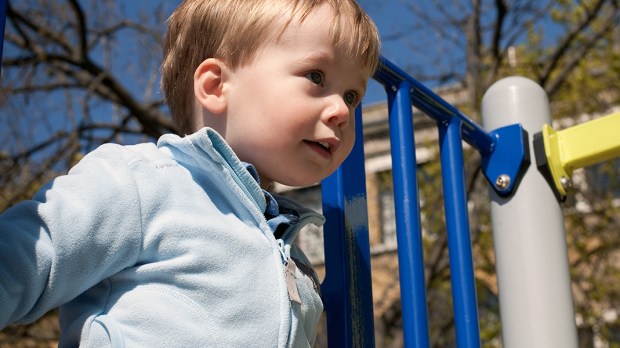If money were no object, I would be looking for the perfect school for my kids and in this hypothetical school, the children would mostly just play outside.
“Why would you pay for someone else to let your kids play outside?” I can hear you asking incredulously. I’ll tell you why — because I work all day and well into the night. Because 2018 looks a lot different than 1978, and it’s illegal to let my kids go roam the neighborhood without accompanying them. And because the absolute best education a child can have is built on one thing: learning through play.
Today’s kids are being systematically deprived of the vital time they need to play outside, from the legal system and the poor economy forcing most parents to work full-time (or more), to the cultural ignorance of the value of play and the counterproductive emphasis placed on academics from far too early an age.
As the Washington Post recently acknowledged, the lack of playtime afforded to young children is having dramatic, measurable repercussions.
Preschool years are not only optimal for children to learn through play, but also a critical developmental period. If children are not given enough natural movement and play experiences, they start their academic careers with a disadvantage. They are more likely to be clumsy, have difficulty paying attention, trouble controlling their emotions, utilize poor problem-solving methods, and demonstrate difficulties with social interactions. We are consistently seeing sensory, motor, and cognitive issues pop up more and more in later childhood, partly because of inadequate opportunities to move and play at an early age.
Playing isn’t just a way for children to pass time. Playing is the essential work of childhood, because it’s through play that kids learn motor skills and social interaction. It’s through play that they learn to solve problems and adapt, whether it’s to shifting social dynamics or shifting terrain.
But today’s preschoolers aren’t learning what they need to learn through play. Instead, they’re learning to sit still for hours, identify letters and numbers, and even read — all shockingly developmentally inappropriate expectations for 4- and 5-year-olds. Kindergartens, where children have traditionally begun learning to read (still generally developmentally inappropriate, though some kids can read at this age) are now excluding rising preschoolers who haven’t already mastered basic reading.
So what happens to the 6- and 7-year-old who is developmentally average, and whose brain is literally not prepared (and often unable) to make the connections required for reading?
They’re disparaged and made to feel stupid, thick, or slow. They’re given special tutoring and special classes and even told they have learning disabilities.
But a lot of them don’t. A lot of them are just normal kids.
My oldest couldn’t read until she was in first grade, not through lack of trying. She just couldn’t grasp it. But shortly after she turned 7 it was like a switch flipped — just like that, she was reading. It looked like magic, but it wasn’t. It was just her brain maturing.
I wish we could revamp our entire educational system around the actual developmental stages of children’s brains. I wish they were given unlimited time to play and explore, years even, before being expected to sit down and read. I wish we respected our children as children … not merely as small adults, but as actual people who have needs and abilities that differ drastically from ours.
Until then, I wish I could find a school that would let my kids play a lot more than they make them work. But until then, at least they have summers.

Read more:
What really matters in children’s early education

